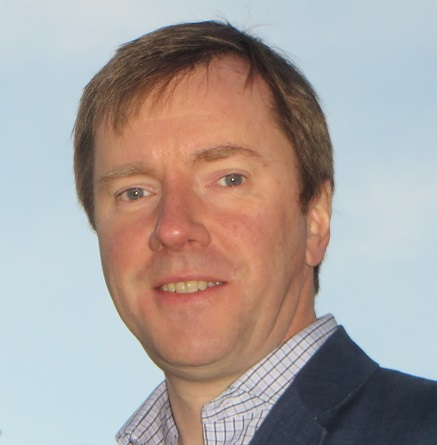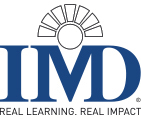- Governance
Business for Society and the Environment
IMD's Frédéric Dalsace believes a new era of business engagement with CSR can mean real change
Professor Frédéric Dalsace of IMD Business School is passionate about the real action required of businesses to affect change on environmental issues and closing the poverty gap—and on the role that business schools must play to help them.
Following the financial crisis business schools took a lot of flak for only preaching business from a single storybook—today that is changing. Partly driven by the conviction shared by many professors that business must change its ways, but also pushed by a new generation of students that place the environment, and social equity higher on the business agenda than their parents and grandparents did.
Frédéric Dalsace is a marketing and strategy professor who has recently joined IMD. His background is in B2B marketing but he has been researching alongside Nobel Prize winner, Muhammad Yunus, for the last ten years on the role that firms can play in alleviating poverty. His focus is very much on how business can play a beneficial role in resolving some of the enduring global issues of today, toward a more efficient and equitable use of the world’s resources.
Prof Dalsace sees that business has had a four-stage engagement, so far, with tackling these issues of poverty of both people and planet.
During stage one (‘Era Zero’, as Prof. Dalsace likes to call it), these “CSR” issues were not even on the agenda, there was ‘no talk and no action.’ Stage two set in when sustainability issues started to become more widely discussed in the media. There was a shift in the commercial world driven by the benefits of being seen to be doing “something” about “it”, but it was largely ‘greenwash’—‘all talk and very little – if any – action. The third stage then came into play and is where most organizations now are. This is where businesses started to have their bluff called and realized they would need to follow-through on their talk, and so we have ‘lots of talk, and some action’
Dalsace foresees a fourth stage approaching, where these activities become so normalized that businesses that shout about their environmental and social credentials are viewed with a degree of suspicion.
This “Stage four” is characterized by ‘less talk and more action.’ Companies are learning that gaining attention for being ‘good’, whether for people or planet, is not beneficial unless it is truly backed by action. Dalsace’s mantra on this behaviour, “the whale that spouts gets the harpoon,” is a warning to all those organizations still engaging with green-washing. “Consumers are increasingly savvy today, and can now access a wealth of information at their fingertips ” he notes, “and organizations cannot just spin PR anymore like in Stages two or three.”
Perhaps more importantly, CSR activities are progressively grounded within each business, and the CSR Director – a rare occurrence - does not fall anymore under the auspices of the PR or Communication Director. If companies are embedding these approaches in all that they do, they will not have a need to talk about it, it will just happen, and the benefits will be seen to flow from all stakeholders. “Just do it, and let the media talk for you,” is Prof. Dalsace’s advice to the companies he advises. “You should not go berserk talking about it – and if you should talk, never do so on intentions only but on proven results.” Too often companies have tripped-up on their over-exuberance on these topics, and not delivered all they promised, adds Dalsace.
He sees that often the NGOs and policy makers were correct to be sceptical of business’s determination to change their methods in search of worthier CSR credentials, and this, he feels, remains the case. The one driver that will ultimately and truly change the dynamic of how businesses operate, to improve society and the environment, is because consumers demand it. “Firms are highly leveraged with their fixed costs, so you only need a relatively small critical mass of customers to change the balance of power” he says. Customers thus have the power to make even the most powerful firms change their course of action.
Prof Dalsace stresses the historical point, that the powerful of the day have always had two reasons to manage societal poverty. On the one hand, it is a moral obligation for those with wealth to ensure that the poor are not abandoned and forgotten. However, it is equally significant for them to do so to ensure their own continued sustainability. As a Frenchman he uses the famous Parisian landmarks to trace where power has been positioned across the centuries. In the 14th Century, Notre Dame stood tall above medieval Paris, signifying the power of the Church, it has always been central to the main global religions, to look after their poor – it being morally and societally required, but also attracting followers to their cause.
As the Church’s power waned, and the role of government, first from Kings and then parliament, grew – it became necessary for the Palaces and the Town Halls to take on and share this responsibility - and those who do that most effectively continue to attract the most voters.
Today, the most prestigious buildings in Paris are the plate-glass towers of La Defense, home to multinational corporations, many of whom have turnovers in excess of small countries’ GDPs. These organizations are beginning to understand that it is both a moral obligation for them to be involved with the poverty issue, as well as in their own best interests. Consumers are attracted to ‘good companies’.
In parallel, Dalsace sees a movement growing in business schools generally, and he is helping promoting it at IMD, to plot a realistic route forward for companies, to enable them to do well by doing good.
We know executives well, and they know that many have ‘dark sides,’ of operations in their firms that they are not keen to publicize. Equally these organizations are filled with intelligent people —who by the way are mothers and fathers too—who know that things have to change. So collectively there is a growing understanding of both the need and the urgency for things to change, and that in order to do that real action must be taken.
Finessing the proposals to make them palatable and more incremental will be part of the process. As Prof. Dalsace notes, “You can’t catch flies with vinegar, you need to sweeten the deal.” The reality is that academic research shows that the “business case for CSR” seems to hold. “Firms can indeed do well when they do good. The return is small, however, there is no automaticity, and no universal rate of return” warns Prof. Dalsace.
The way forward for the world’s largest businesses is certainly not clear, but Dalsace is adamant that business schools like IMD must play their part in discovering and designing solutions so that these organizations can react effectively to the increasing consumer demands for change. They must do this in an integrated, systemic way that involves ground-level change, not just talk, and to the extent that it is so normalized that they do not feel it merits strings of press releases.
IMD is a top-ranked business school, expert in developing leaders, transforming organizations and creating immediate and long-term positive impact.
ARTICLES YOU MIGHT LIKE
VIDEO
WEBINAR RECORDING: Prof. Walid Hejazi, Andrea Barrack, and Susan McGeachie explore and debunk some of the enduring myths surrounding ESG
DEVELOPING LEADERS QUARTERLY MAGAZINE AND WEEKLY BRIEFING EMAILS


































